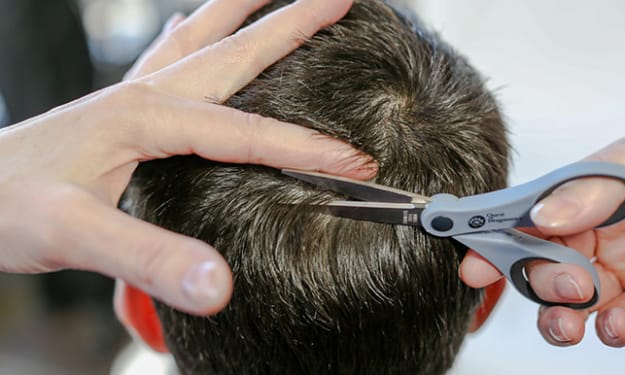Can a Judge Order a Hair Follicle Test in Texas?
Understanding the Legal Use of Hair Follicle Drug Testing in Texas

In Texas, as in many states across the United States, the law strives to balance individual rights with the need to ensure safety and justice, especially in matters concerning family law, criminal cases, and employment. One of the tools at the disposal of the courts to help maintain this balance is the hair follicle drug test.
This type of test can provide drug use history over a longer period, typically up to 90 days, making it more comprehensive than urine or blood tests. But can a judge in Texas legally order someone to undergo a hair follicle test?
Let's delve into this topic to understand the legalities and scenarios in which such a test may be ordered.
Legal Framework for Hair Follicle Testing in Texas
In Texas, judges have the authority to order hair follicle tests under certain circumstances. The state's legal framework provides judges with broad discretion to make decisions in the best interest of justice and public safety. This includes ordering drug tests in various contexts:
Family Law Cases: In child custody or divorce proceedings, the court may order a hair follicle test if there is a concern that one of the parents is using illegal drugs. The primary consideration is the welfare of the child, and demonstrating a drug-free environment can be crucial.
Criminal Cases: Defendants on probation or individuals involved in drug-related offenses may be subjected to random drug testing, including hair follicle tests, as a condition of their probation or pre-trial release.
Employment: Certain jobs, especially those that are safety-sensitive or require a high level of security clearance, may involve mandatory drug testing. While an employer can request a hair follicle test, the situation becomes legally complex if the individual refuses and the matter ends up in court.
The Process and Implications of Ordering a Hair Follicle Test
When a judge considers ordering a hair follicle test, the decision is not made lightly. The court must have reasonable grounds to believe that the test is necessary for the determination of the case at hand. For example, in custody cases, evidence or allegations of drug use might prompt such an order. The judge will consider the potential impact on the child's welfare, the reliability of the allegations, and the rights of the individuals involved.
Refusing to comply with a court-ordered hair follicle test can have serious implications. In family law cases, refusal might be seen as an admission of drug use, potentially affecting custody arrangements. In criminal cases, it could lead to a violation of probation or pre-trial conditions, resulting in further legal consequences.
Challenges and Controversies
The use of hair follicle testing is not without its controversies. Critics argue about the accuracy of the tests, the potential for false positives, and the possibility of discrimination. Hair texture and color can affect the absorption of drug metabolites, leading to concerns about racial bias in the results. Additionally, the test cannot determine the frequency of drug use or whether an individual is currently under the influence.
Despite these challenges, Texas courts continue to use hair follicle testing as a tool in their legal proceedings, balancing the need for comprehensive drug use assessment with the rights and freedoms of individuals.
Conclusion
In Texas, judges can and do order hair follicle tests under certain conditions, primarily when the welfare of a child is at stake or to ensure compliance with the law in criminal cases. While this testing method offers a longer detection window for drug use, it also raises questions about accuracy, privacy, and fairness.
As the legal landscape evolves, so too will the discussion around the use of hair follicle testing in the judicial system. For those facing the possibility of such testing, understanding your rights and the legal standards at play is crucial. Consulting with a legal professional can provide guidance tailored to the specific circumstances of your case.






Comments
There are no comments for this story
Be the first to respond and start the conversation.